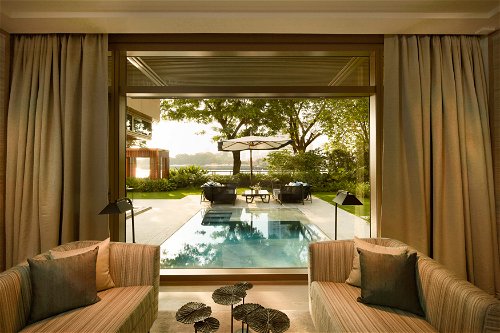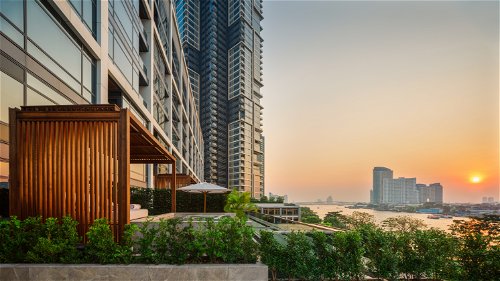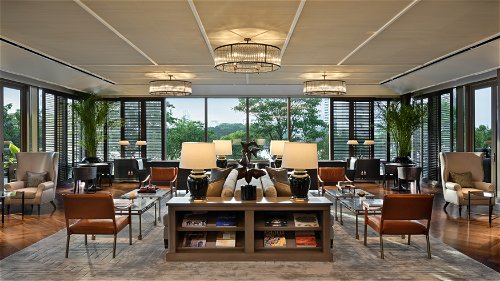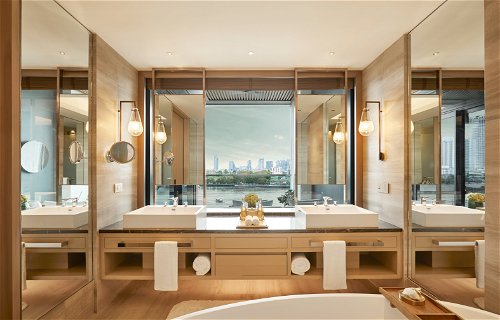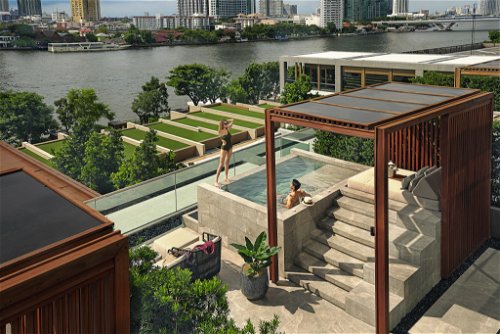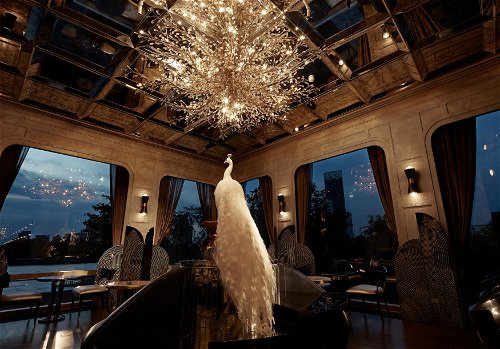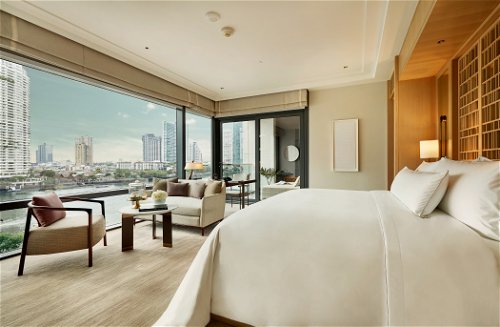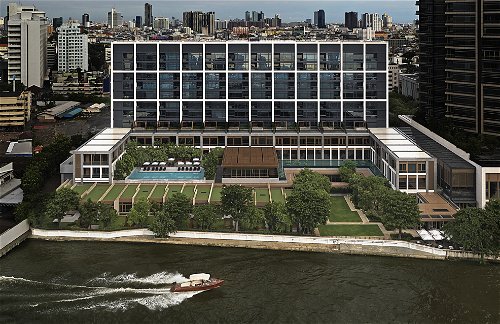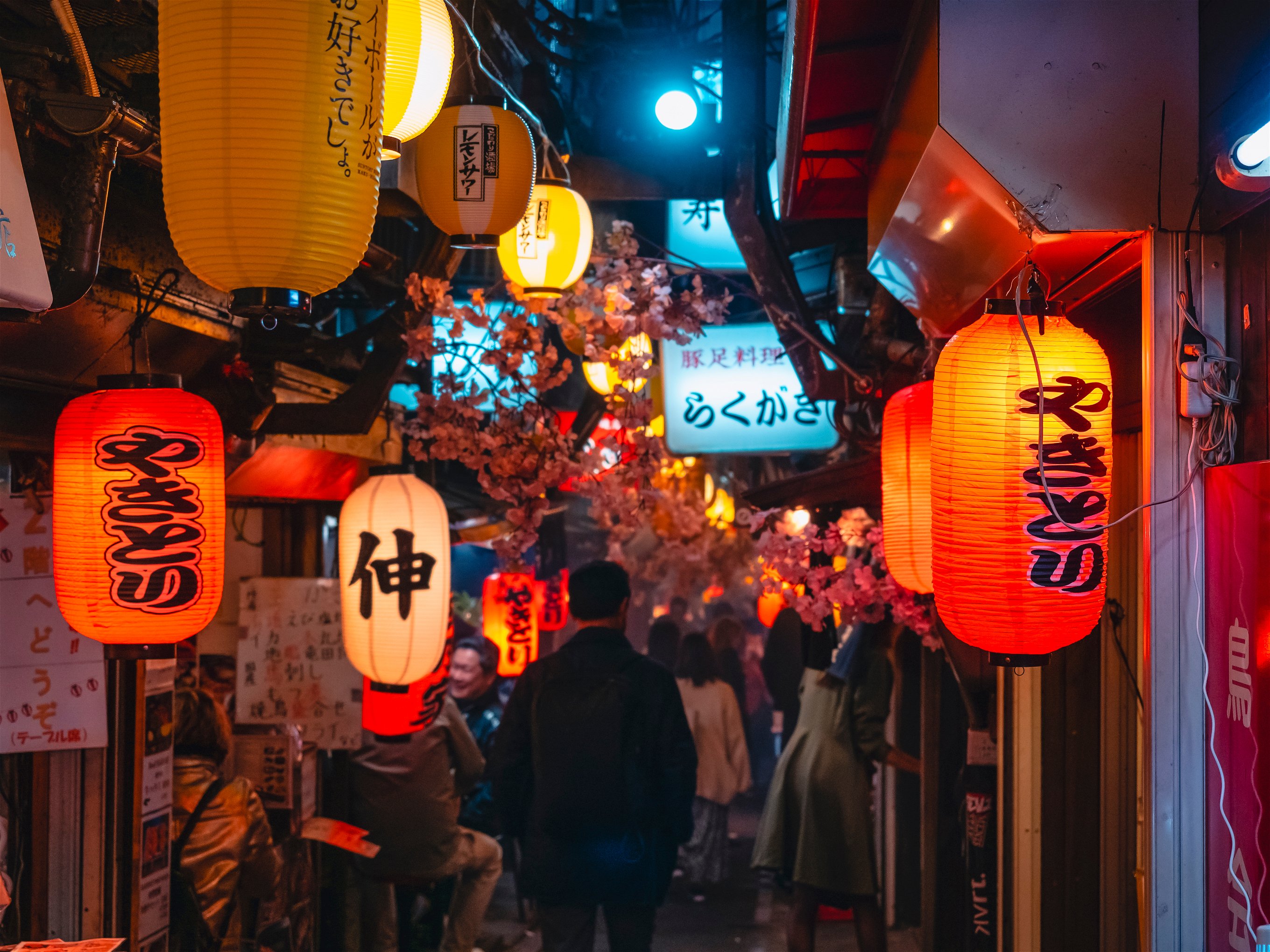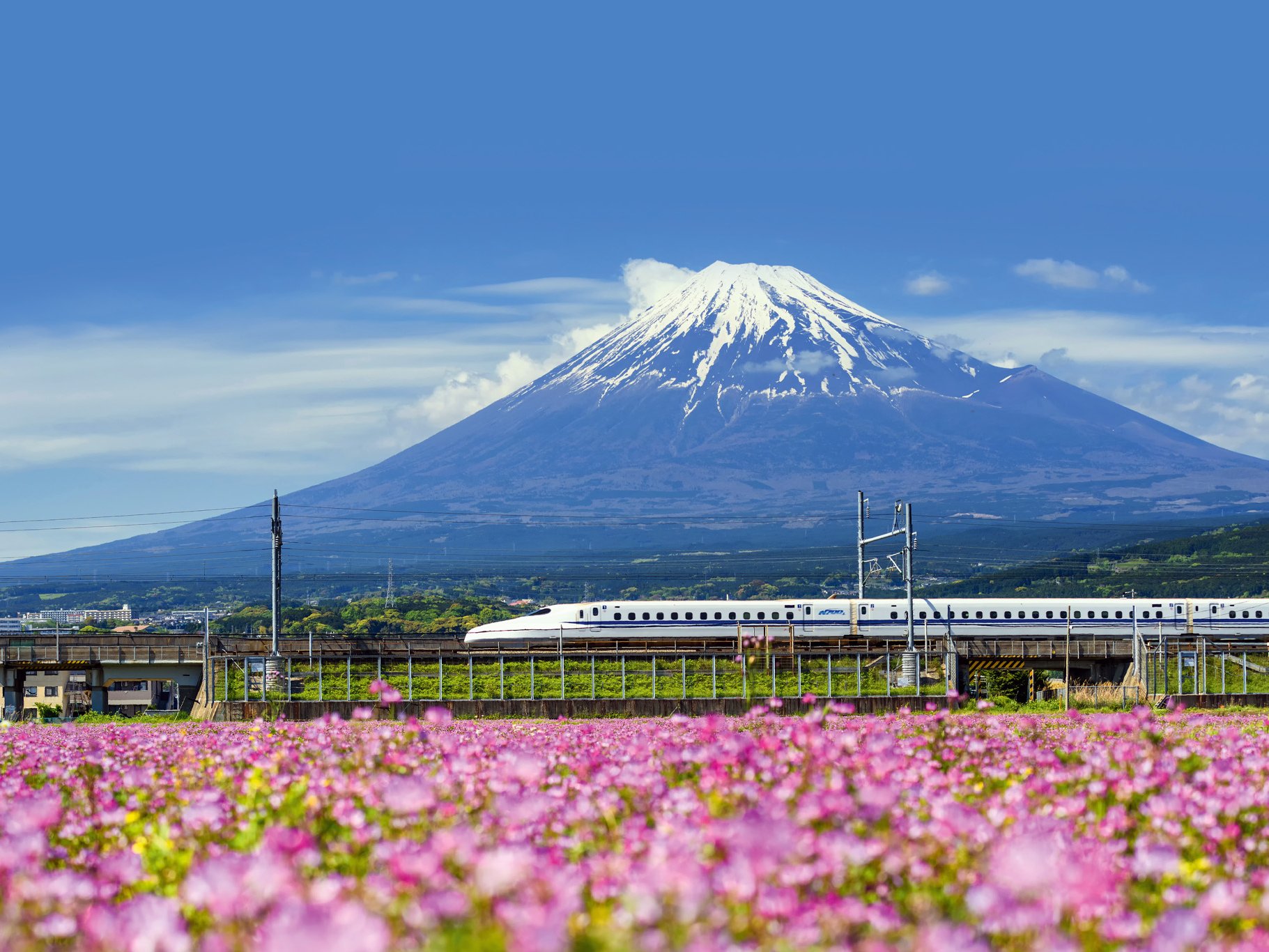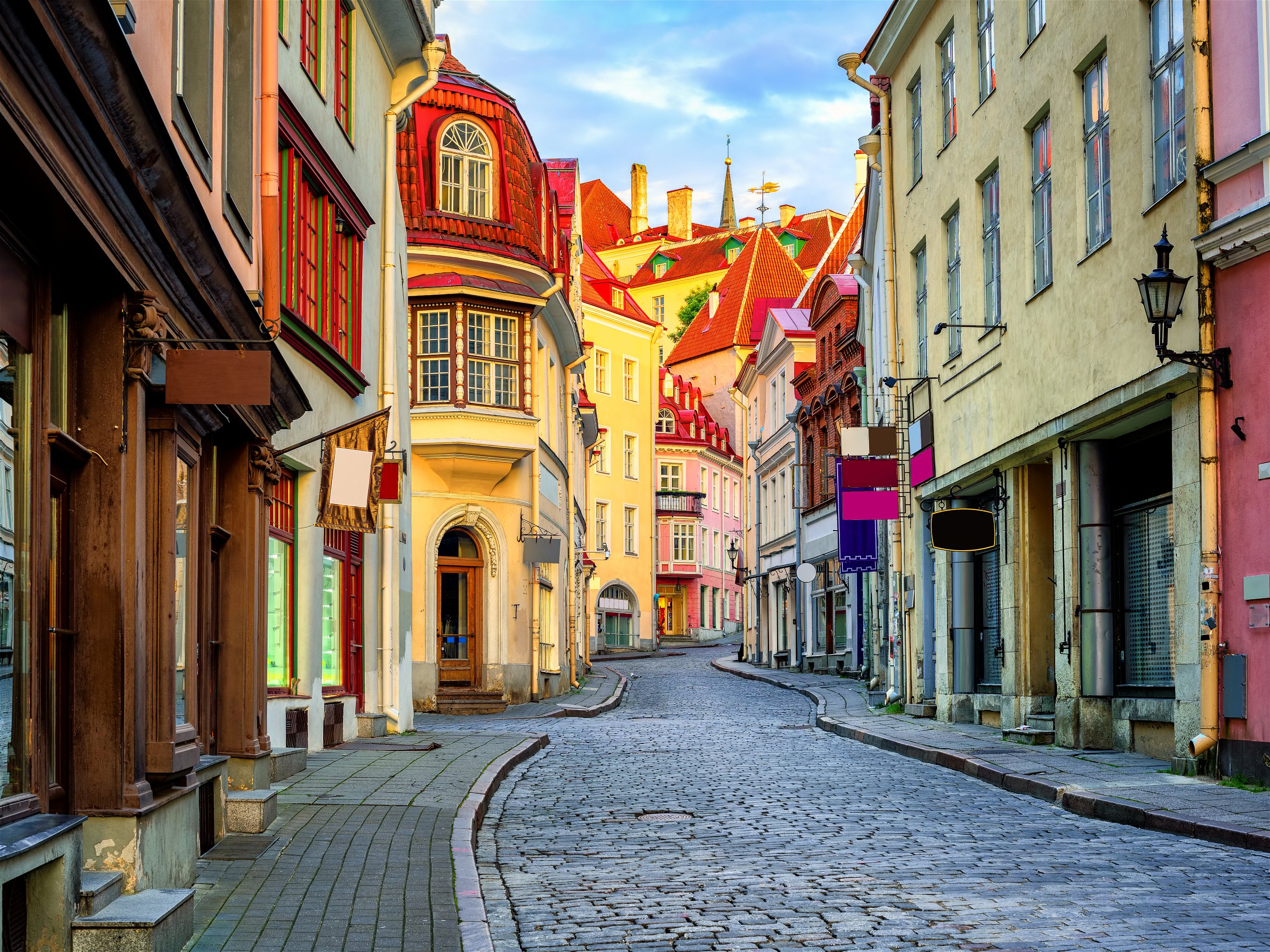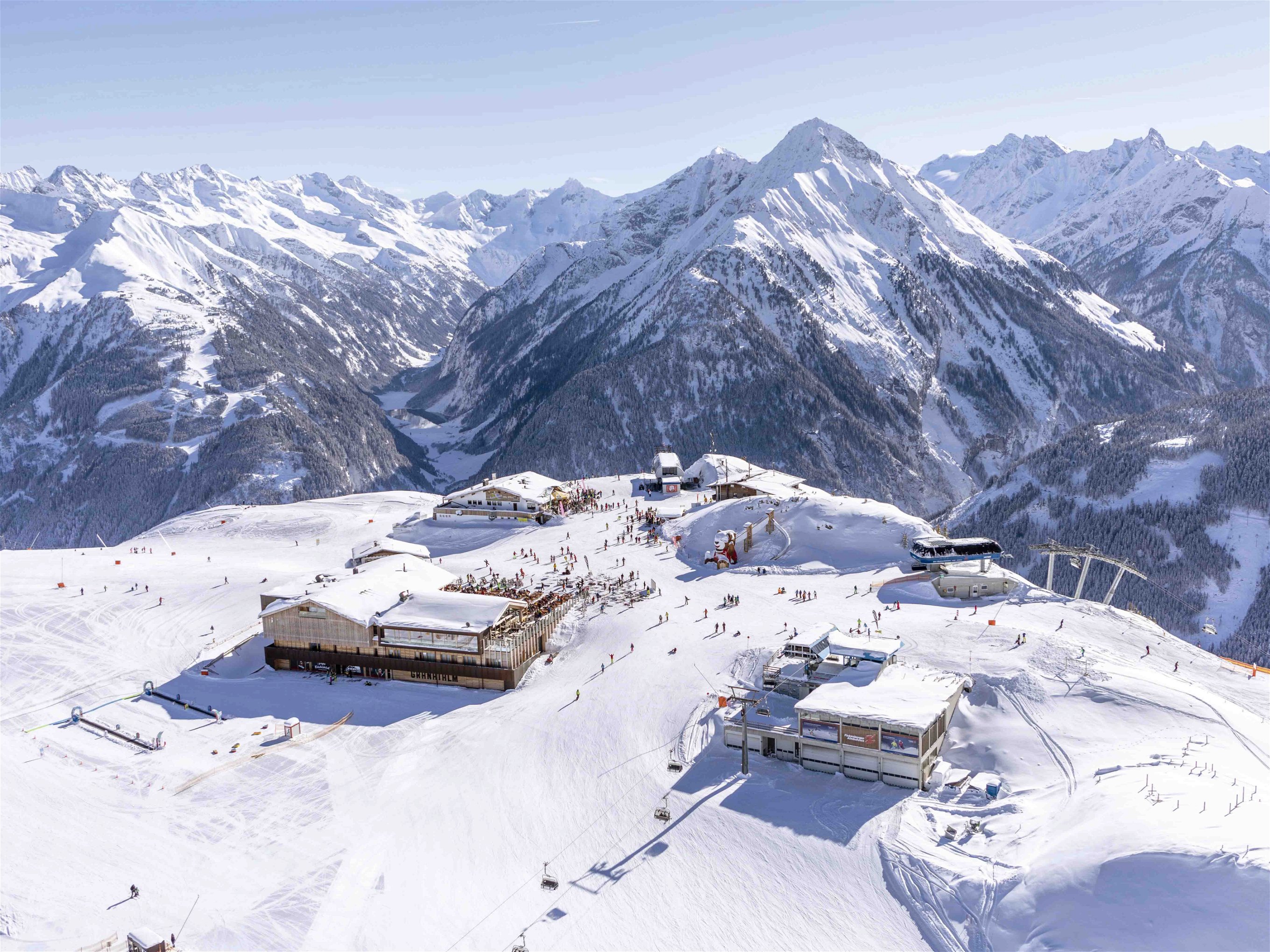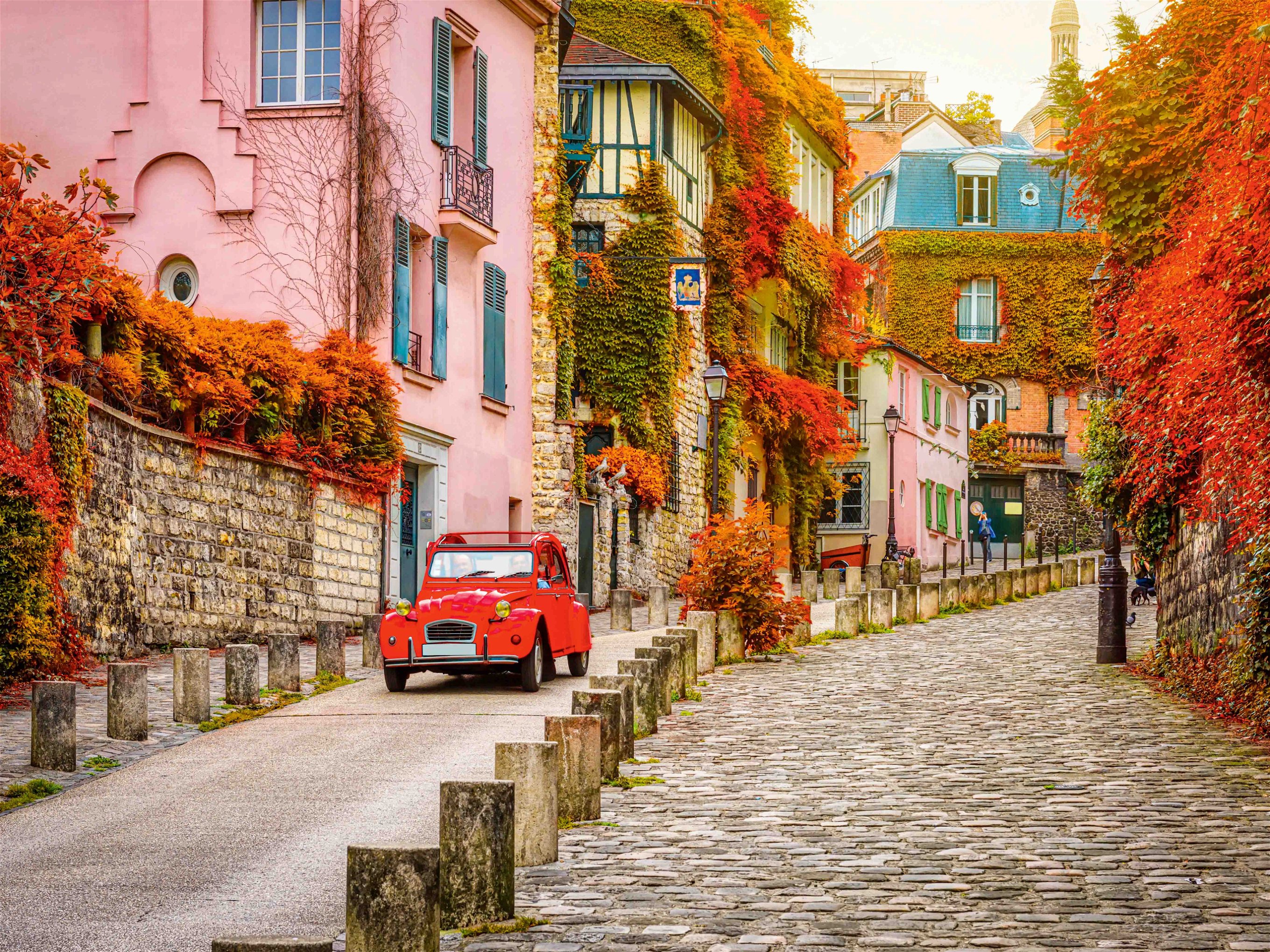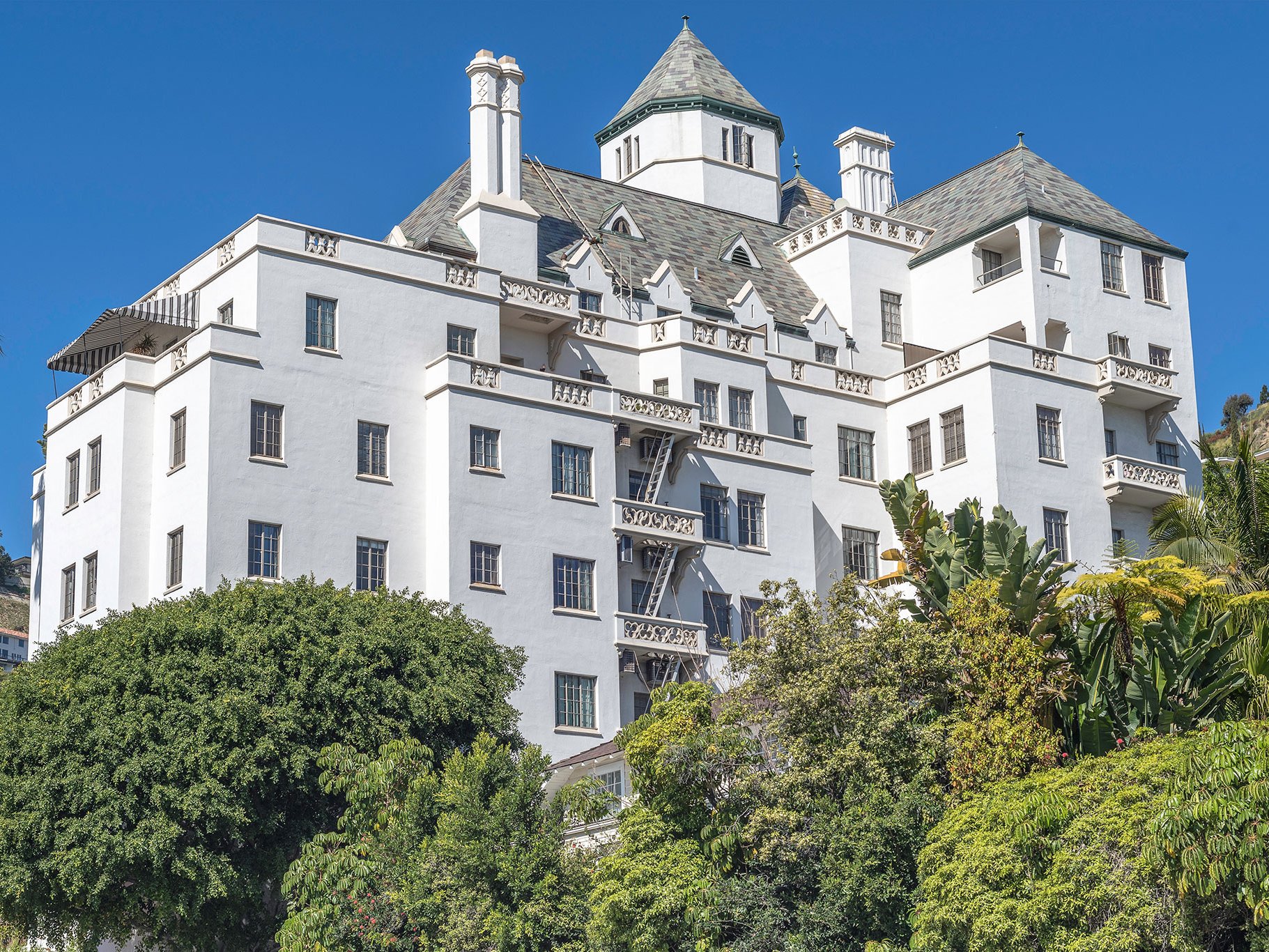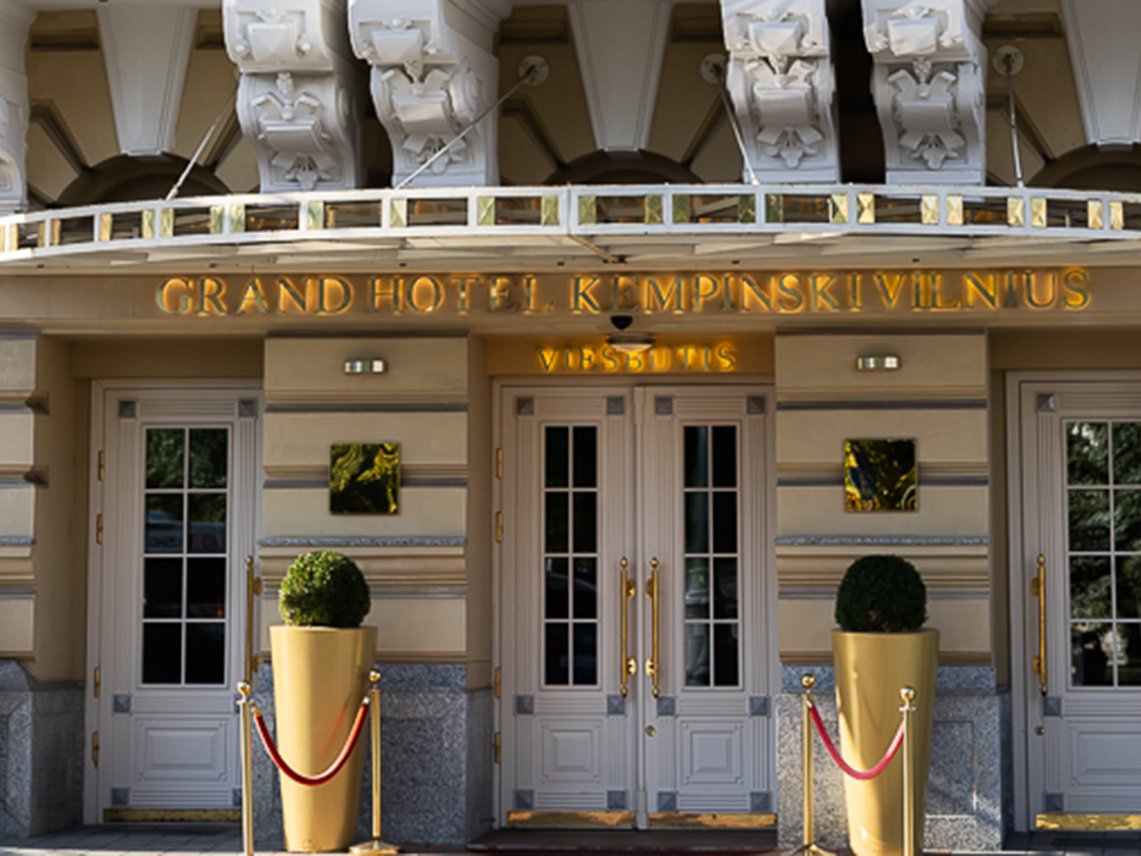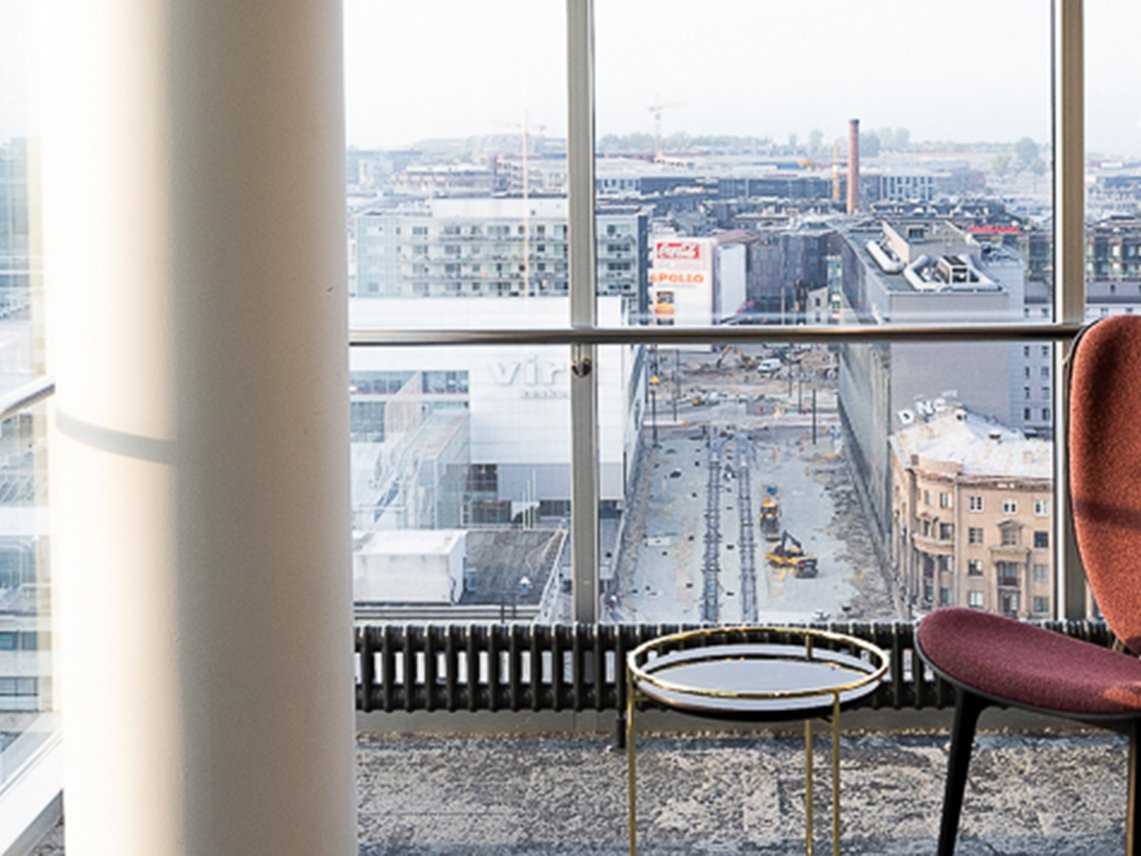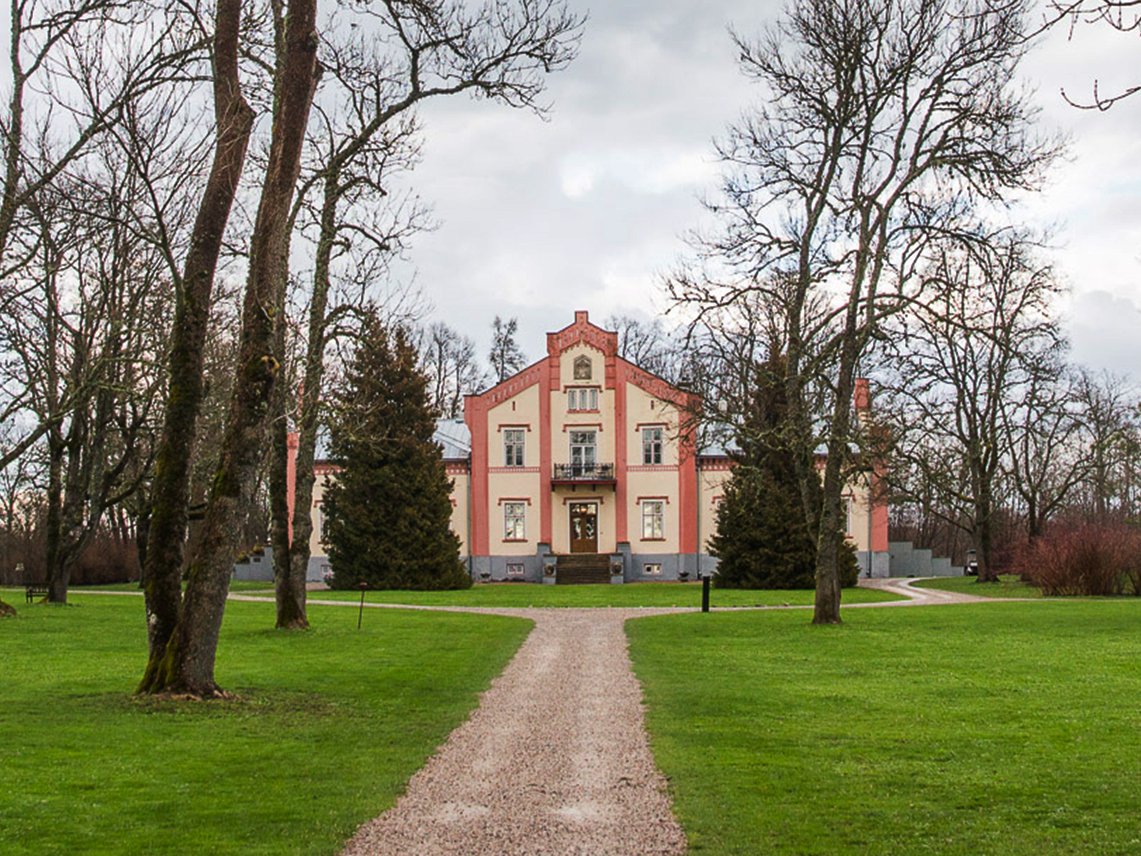A look behind the scenes at Capella Bangkok
A 5-star luxury location in a metropolis of millions: General Manager John Blanco of the Capella Bangkok discusses change in the concept of luxury, how it fits in with sustainability, and what personal grandeur awaits his guests.
A visibly cheerful John Blanco stands in the elegant lobby of the Capella Hotel in Bangkok having just returned from holiday. The American-born, six-language-speaking citizen of the world is the general manager of the five-star hotel, which opened in October 2020. The resort-like venue is one of the latest additions to the Asian megacity, which is not short of luxury hotels, and like its main competitors, the Mandarin Oriental, Peninsula and Four Seasons, it is prominently located on the banks of the Chao Praya River. But even though the early life of the hotel was far from straightforward – it opened in the middle of the pandemic – it has not only just been voted the best hotel in Bangkok, but the Singaporean ‘Capella Group’ has also just been named the best hotel brand in the world. So, this hotel is definitely doing a lot right, and John tells Falstaff what exactly led to this success.
Capella Bangkok is one of the five best hotels in the world. What are the challenges in the luxury hotel industry to meet the individual needs of the guests?
Today, no one can define what exactly luxury is – except oneself. For me, luxury is perhaps sitting on a plastic stool on the street in Thailand and eating incredibly delicious noodles. Especially now, after the pandemic, people want to satisfy their hunger for unique experiences. We in the luxury hotel industry have to ask ourselves: How do we create that for each and every guest? At Capella, we are very lucky that our hotels are relatively small. Because of this and our service culture, we are able to take time for the individual needs of our guests. The bottom line is to create a kind of emotional bond.
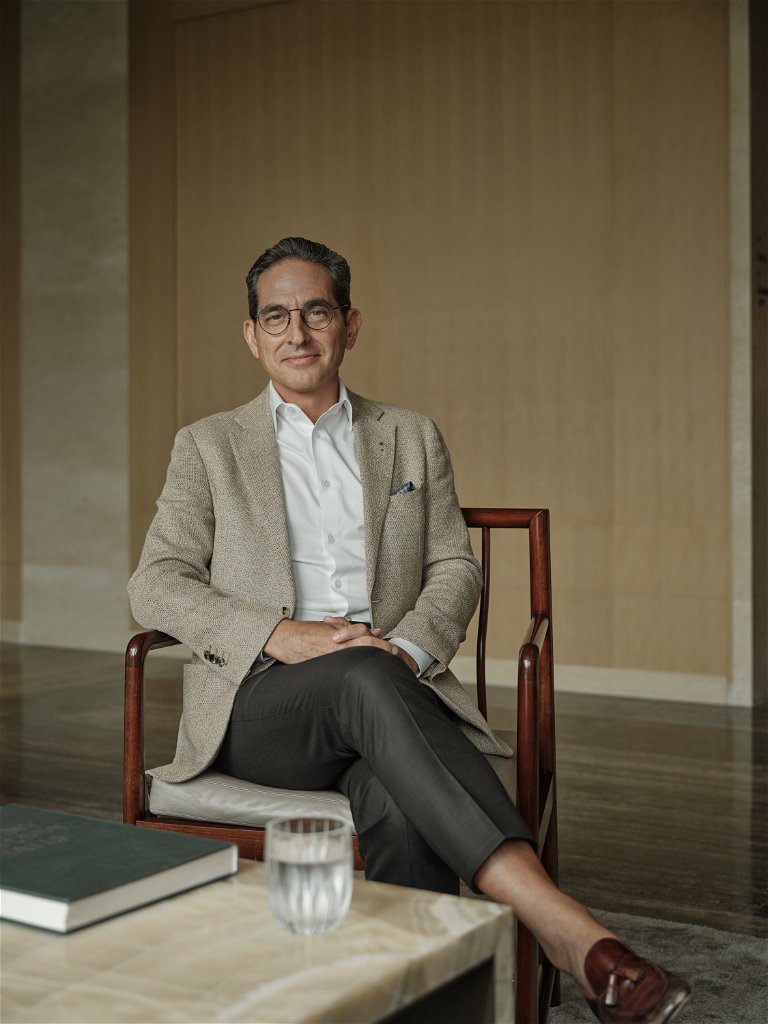
How does the Capella Bangkok differ from the other 5-star hotels in the city?
There are many luxury hotel brands in Bangkok that offer a stay of the highest standard. Competing with high standards alone is therefore completely pointless. The brand ethos of Capella involves curating experiences. We have a special understanding of how each guest personally defines luxury on their journey. People are more fickle these days than they were before the pandemic. We realise that there are an incredible number of wonderful things that we can now enjoy again – and we accompany our guests with passion and know-how.
How is luxury defined in the hotel industry in general?
I have been working in the hotel industry for 35 years, and the interpretation of luxury in the commercial sense has changed a lot over time. In the 80s and 90s, the definition was clear: this is luxury and this is the way to get there. For big chains like ‘Ritz Carlton’ or ‘Four Seasons’, for which I used to work, this means having to reliably reproduce a high standard. That requires a certain level of consistency. To be successful on this scale, you have to create rules that can be applied always and everywhere in the world.
How has the concept changed over time?
I remember an experience in Paris in the early 80s, in a top-class hotel. I just wanted to have a coffee and I was wearing a leather jacket. Immediately I felt the rejection of the staff. At that time, you had to wear a suit. I didn't feel welcome at all. From today’s point of view, that is a very antiquated idea of luxury. Today, more than ever, the definition of luxury is a very personal matter and can mean something different for each guest.
On your website you can read the term “Cultourist”. What exactly do you mean by this and what does it mean for the concept of the hotel?
Every hotel of the Capella Group looks and feels different. The special commonality of all the houses is to reflect the unique atmosphere of the respective place without being a theme hotel. The site on which the Capella Hotel Bangkok now stands was once a huge fish market, before that it was a Scandinavian embassy, and quite originally a Buddhist temple stood here. The land belonged to a Thai family who later donated it to the king. The property is located on the first paved road in Bangkok. It is all these stories that have shaped the place. First and foremost, it's about understanding where we are and communicating that to the guest without lecturing them. How can we integrate the history of the place into our work? That is the function of the Cultourist.
How do they implement sustainability in a luxury hotel?
We want to positively influence the local community we work with and not just install one-off PR measures, but substantially and permanently change conditions for the better. For this purpose, we work together with the company ‘Earth Check’. For example, none of our suppliers are allowed to deliver their products in plastic packaging. We have special, reusable, sterilised containers in which the food is transported. The hotel is equipped with modern technologies that guarantee ecologically sustainable processes. Be it the treatment and recycling of waste water, or the higher energy efficiency of the air conditioning systems.

